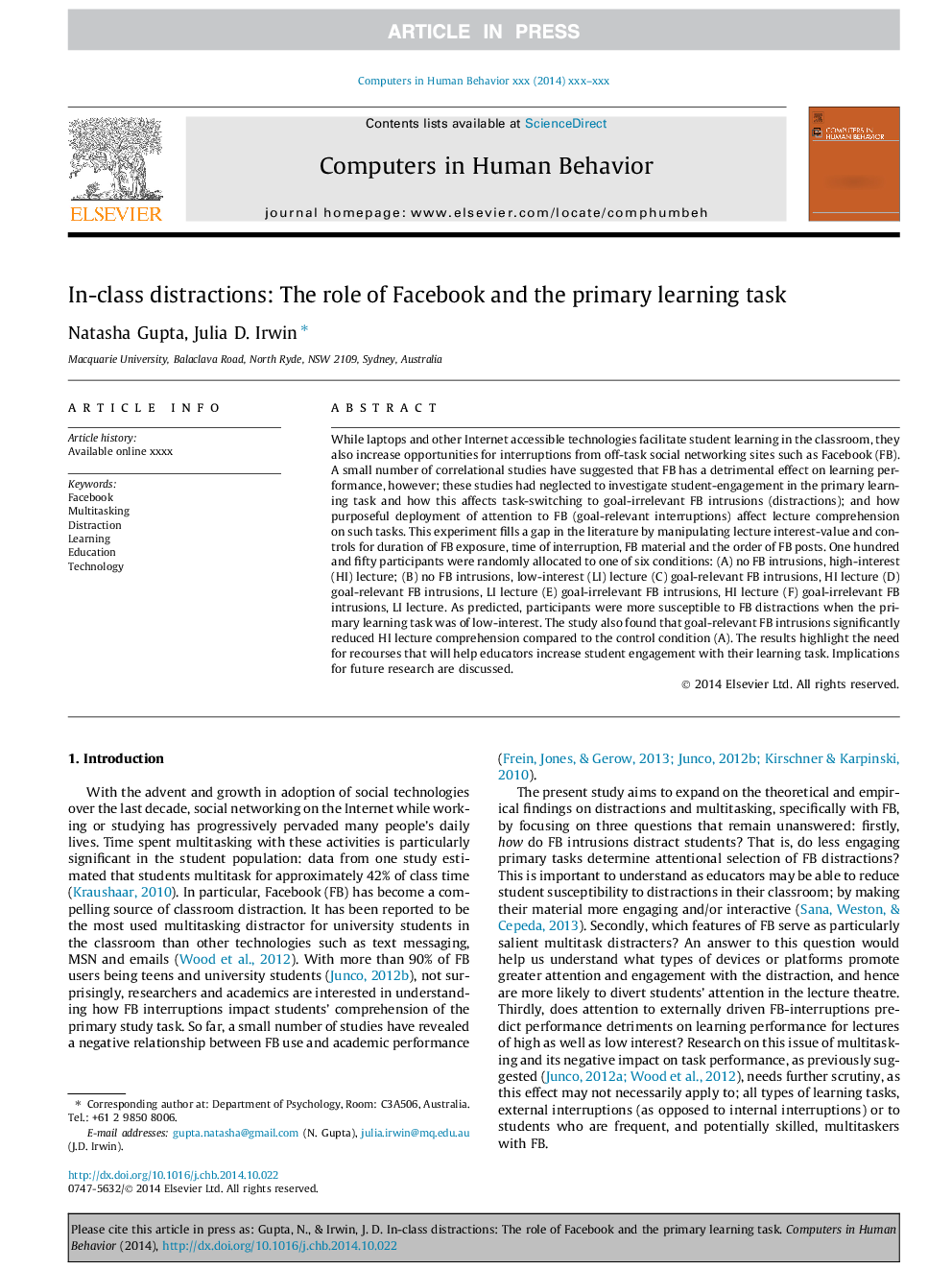| Article ID | Journal | Published Year | Pages | File Type |
|---|---|---|---|---|
| 10312746 | Computers in Human Behavior | 2016 | 14 Pages |
Abstract
While laptops and other Internet accessible technologies facilitate student learning in the classroom, they also increase opportunities for interruptions from off-task social networking sites such as Facebook (FB). A small number of correlational studies have suggested that FB has a detrimental effect on learning performance, however; these studies had neglected to investigate student-engagement in the primary learning task and how this affects task-switching to goal-irrelevant FB intrusions (distractions); and how purposeful deployment of attention to FB (goal-relevant interruptions) affect lecture comprehension on such tasks. This experiment fills a gap in the literature by manipulating lecture interest-value and controls for duration of FB exposure, time of interruption, FB material and the order of FB posts. One hundred and fifty participants were randomly allocated to one of six conditions: (A) no FB intrusions, high-interest (HI) lecture; (B) no FB intrusions, low-interest (LI) lecture (C) goal-relevant FB intrusions, HI lecture (D) goal-relevant FB intrusions, LI lecture (E) goal-irrelevant FB intrusions, HI lecture (F) goal-irrelevant FB intrusions, LI lecture. As predicted, participants were more susceptible to FB distractions when the primary learning task was of low-interest. The study also found that goal-relevant FB intrusions significantly reduced HI lecture comprehension compared to the control condition (A). The results highlight the need for recourses that will help educators increase student engagement with their learning task. Implications for future research are discussed.
Related Topics
Physical Sciences and Engineering
Computer Science
Computer Science Applications
Authors
Natasha Gupta, Julia D. Irwin,
